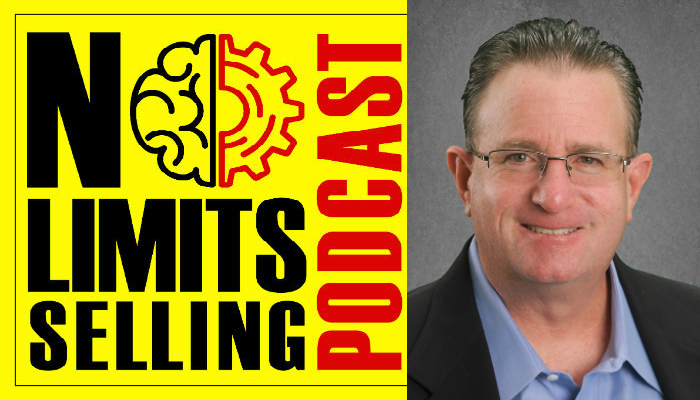The 6 Steps To A Successful Pre-Call Sales Plan
On Episode 124 of The No Limits Selling Podcast, we have Jeff Borovitz, known for triple-digit revenue and profit increases, with over 25 years of experience as an award-winning quota-busting salesperson, sales manager, general manager, and small business owner.
Jeff has been on over 5,000 face-to-face sales calls and has dialed the phone over 150,000 times to schedule appointments, follow up, and close sales. He has trained thousands of salespeople as a sales trainer for 3 of the largest sales training companies in the world. Jeff has advised, trained, and coached small and medium-sized companies as well as large enterprise companies on developing stronger sales teams, closing more sales, and leading organizational change. Jeff is available for speaking opportunities and keynote speeches.

Contact Jeff:
[EDITOR’S NOTE: This podcast is sponsored by No Limits Selling. It is a fun, fast-paced podcast that delivers hard-fought business advice that you can implement today to improve your sales and performance]
Interested In Our Real Estate Coaching Services? Explore Our Website: Link
Feeling Not Well Today? You Can Use Our Mindset Boosters App To amp Up Your Mood: Link
Find us on Social Media:
LinkedIn | Facebook community | Instagram
Like what do you listen to? Subscribe to our podcast!
Ready to become fearless? We can help you become fearless in 60 days so you accomplish more in your career Schedule A 15 min Call with Umar
Summary
Introduction
The podcast is a conversation between Umar Hameed, the host of the No Limits Selling Podcast, and Jeff Borovitz, referred to as a Sales Master. The podcast was recorded on February 2, 2021, and lasted for 28 minutes and 11 seconds. The key topics discussed in the podcast include sales, objections, client relationships, and trust-building.
Common Mistakes in Sales
The conversation begins with Umar Hameed asking Jeff Borovitz about the common mistakes that salespeople make. Jeff identifies the lack of pre-call planning as a significant issue. He mentions a study from his company, the sales board, which found that 96% of salespeople have no written objective before going on a sales call.
The Importance of Pre-Call Planning
Jeff emphasizes the importance of having a clear objective and a plan before making a sales call. He suggests that pre-call planning should be part of the company culture. He criticizes the approach of many salespeople who show up and want to win it on the sales call without doing enough pre-call planning work.
Anecdote: The Soccer Conversation
Jeff shares an anecdote about a sales call where the salesperson spent most of the time talking about soccer with the client, due to a shared interest. However, they never got around to discussing the purpose of the call, which was to get the client to agree to a paid trial. Despite this, the salesperson considered the call successful because he had connected with the client on a personal level.
Conclusion
In conclusion, the podcast featuring Jeff Borovitz on the No Limits Selling Podcast, hosted by Umar Hameed, emphasizes the importance of pre-call planning in sales. Borovitz identifies a common mistake among salespeople, which is the lack of a clear, written objective before making a sales call. He shares an anecdote to illustrate the potential pitfalls of not having a clear objective, where a salesperson spent most of the call discussing a shared interest in soccer with a client, but failed to address the actual purpose of the call.
The conversation underscores the need for salespeople to balance personal connection with clients and the business objectives of the call, highlighting the necessity of pre-call planning as part of a successful sales strategy.
Questions & Answers
What is the main topic of the Jeff Borovitz podcast on No Limits Selling?
What is the common mistake that salespeople make according to Jeff Borovitz?
Why is pre-call planning important in sales?
What happens when salespeople do not do pre-call planning?
How can salespeople balance personal connection with clients and business objectives?
What is the key takeaway from the Jeff Borovitz podcast on No Limits Selling?
Don’t miss this opportunity to transform your real estate career with one-on-one coaching. As an experienced real estate coach, I, Umar Hameed, am dedicated to helping you unlock your full potential and achieve your real estate goals. To learn more about who am I and my clients ↓
If you’re ready to take the next step, book an appointment with me today and begin your journey toward success in the real estate industry.
